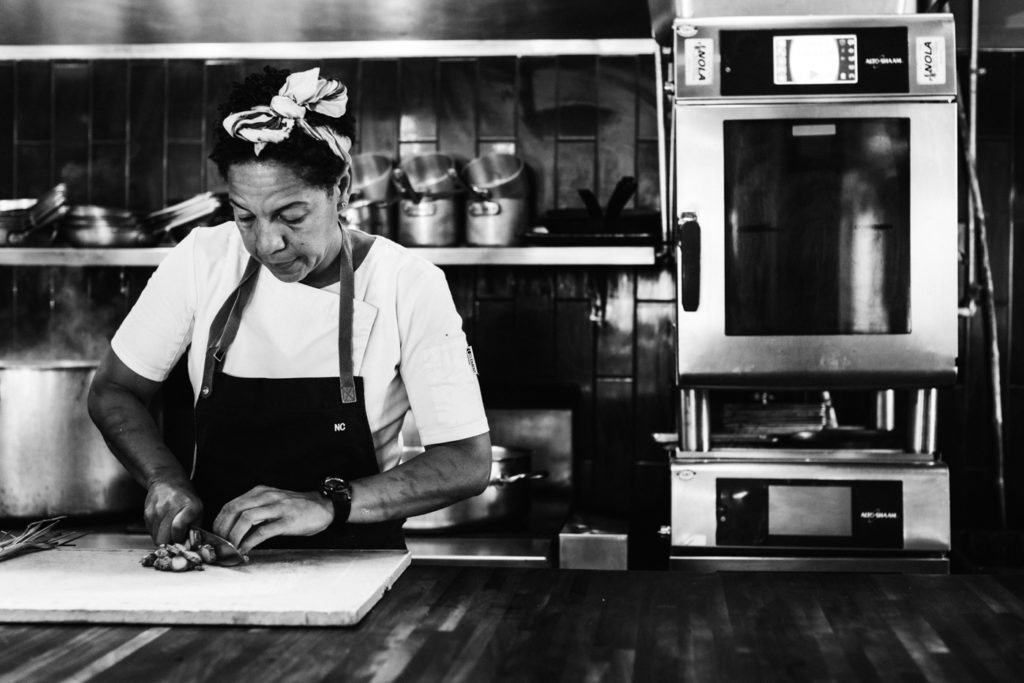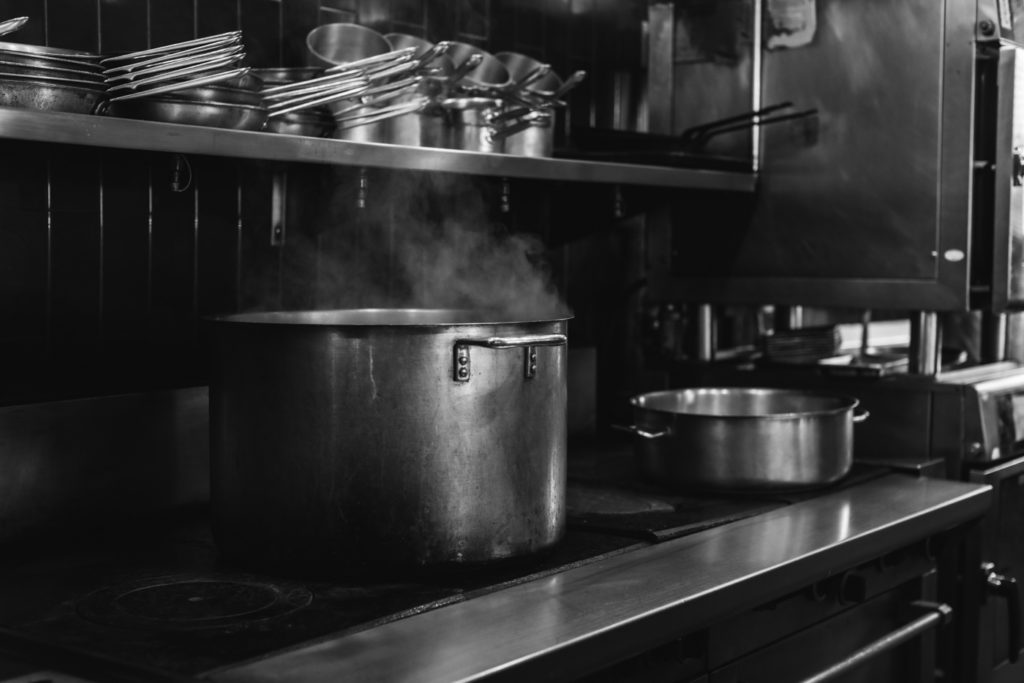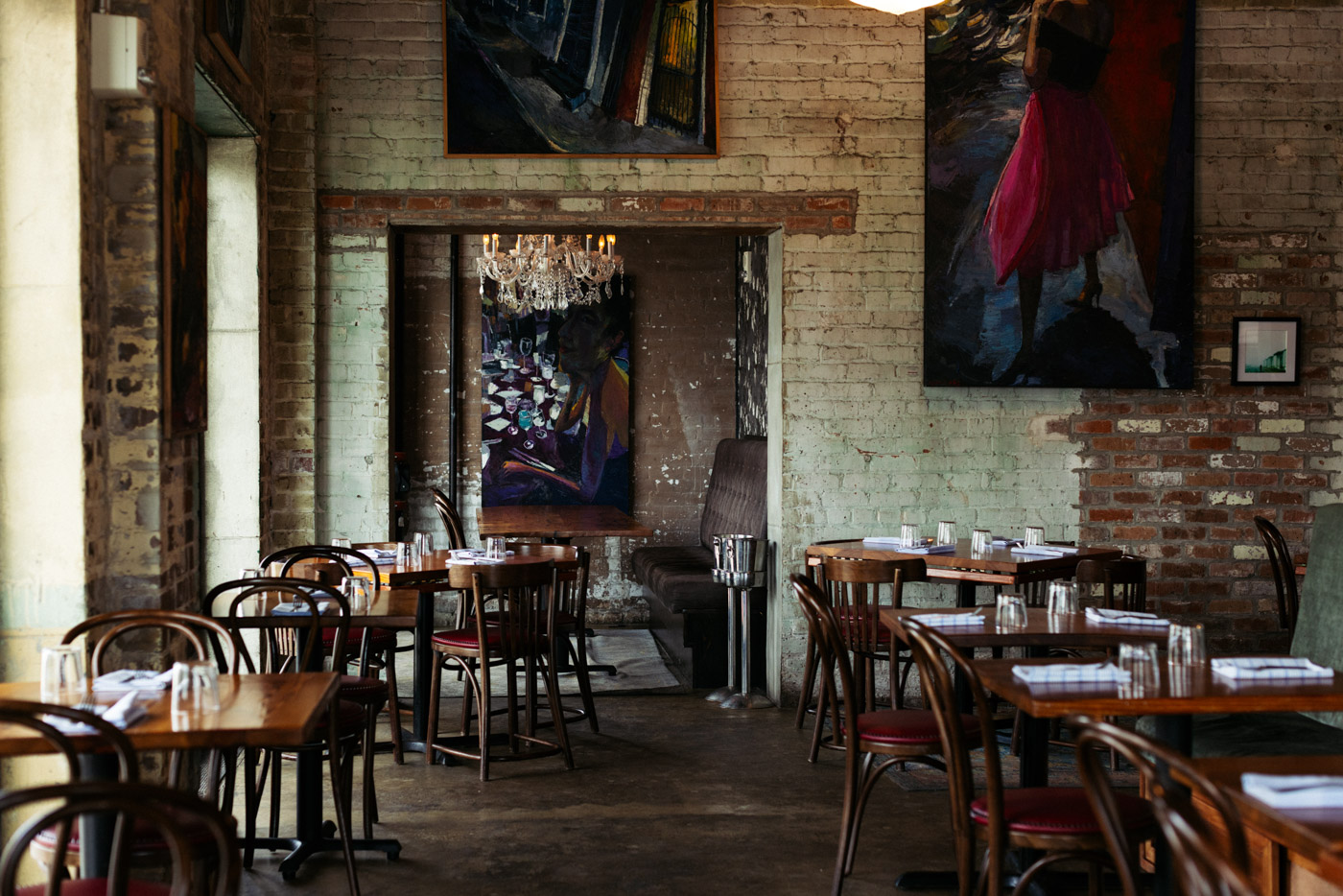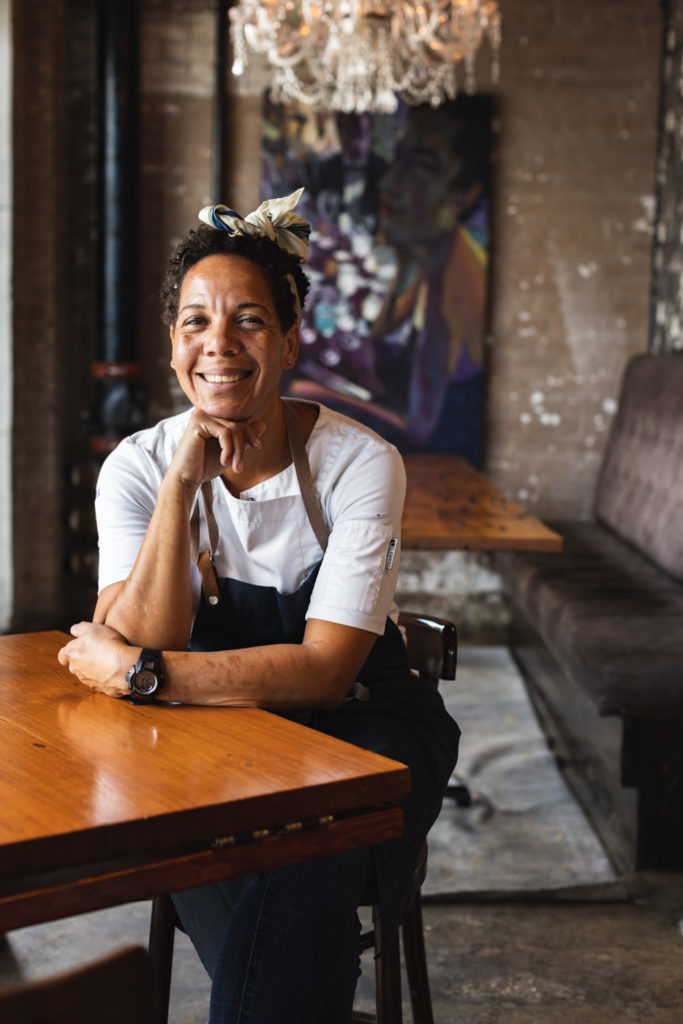Editor’s Note: This story is published in The What We Carry Issue of Life & Thyme Post, our exclusive newspaper for Life & Thyme members. Get your copy.
After competing and coming in second place in Top Chef: New Orleans in 2013, Chef Nina Compton had options. Her display of skill on the television program wowed audiences in ways that opened doors for her to advance her career outside of Miami, where she spent the previous 14 years. When job offers from cities across the country came in, she felt unsure of how to react or what to accept.
But when an offer to return to New Orleans arrived, she didn’t think twice. The Saint Lucia native knew that New Orleans would be the right—and likely final—move for her career. New Orleans adopted Compton just as much as Compton adopted her new home. The community quickly embraced her arrival. “People would stop me in the grocery store and thank me for moving to the city,” she says. “They would say, ‘We can’t wait for your restaurant to open.’ People I didn’t even know. They treated me like royalty when I came here, and I don’t think anywhere else would’ve done that.”
Her stint on Top Chef made her intentional in her approach to entering a city well-known for its fierce protection of its culture and history. “[The production team] did a really good job of research, understanding that there’s more to New Orleans than gumbo and hand grenades,” Compton recounts. “They did a lot of research on musicians. They brought in judges who knew. They did research on the local ingredients.” It was also that very same tradition of honoring and representing history in every facet of the city, including food, that sung to Compton.
“It feels a lot like the Caribbean. The buildings, the focus on the quality of life, the music, the food,” she says. “People here, they want to share and include you in a lot of things. For me, it feels like home.”
Compton grew up on Saint Lucia, a Caribbean island centered between Martinique and Saint Vincent, northwest of Barbados. New Orleans and Saint Lucia, similarly to most of the Caribbean, share a common history of manipulation from colonial powers as the legacy of the slave trade played out in only slightly more subtle ways after slavery was technically abolished. Both communities emerged from those power battles with a deep sense of cultural pride. New Orleans’ historic status as a port city paved the way for a confluence of cultures that entered the city—both forcibly and independently—that is still present and felt today. In fact, in Saint Lucia, Compton’s father, Sir John Compton, was the first prime minister to lead the country after independence from British rule in 1979. John Compton served as Prime Minister three times over the course of nearly 16 years.



The nostalgic tone that Compton uses to describe how she fell in love with cooking as a child makes clear why she followed a different path than her father. “At any given point, there was always somebody in the kitchen cooking, and it was a gathering spot for my family. Everything was celebrated over food. We did a lot of family time sitting down together and having meals together,” Compton recalls. “So those things for me, even at a young age, were very instrumental in understanding how food brought people together.”
After years of watching and helping her grandmother and mother cook, she eventually insisted that they sit back, relax, and let her lead the kitchen. It was then that she knew what she wanted to do. “I remember seeing the reactions from the food that I cooked,” she says.
At age 17, when she told her mother, Janice, that she wanted to be a chef, she received a reaction of concern and apprehension. Her mother pressed upon her the stress, hours and demands of the career she was choosing. “I said, ‘I’m just going to give it a shot. And if it doesn’t work out, I’m still young enough to change my mind.’”
Compton’s first job was in the kitchen of Saint Lucia’s Sandals Resort, which eventually turned into moving to New York for culinary school and then to Miami to work with renowned chefs like Scott Conant and Norman Van Aken.
“My entire culinary career in the States was just a plan to be temporary for a year,” explains Compton, who originally planned to train briefly in the U.S. and then return to Saint Lucia. “When I moved to Miami, it took me a while to find my niche, and then I looked up one day and it was 14 years later. Each year just got bigger and better for me.”
Even though living in New Orleans does not necessarily count as returning to the Caribbean, her life and career in the city represents a return to home for Compton in many ways. In the last seven years, Compton successfully opened two restaurants: Compère Lapin first, and then Bywater American Bistro. Her approach to Compère Lapin—a restaurant that prides itself on honoring history through fusing Creole and Caribbean flavors—embodies the same values that brought her to New Orleans in the first place.
“Understanding my Caribbean roots is a very big thing. When we were first opening up Compère Lapin, I was asked for a concept. That was a first for me. I never really thought about it, because for so long I had worked with so many different chefs and I executed their dream and their vision,” says Compton. “I had to pause and say, ‘Well, I’m able to execute my vision and my dream.’ Letting people know where I’m from and the sense of pride I have about Caribbean food was really important for me.”

Compton acknowledges the significance of calling attention to her roots in a country where history is generally relatively sanitized, as well as a profession that long prioritized colonial cuisines as the model for fine dining. “I always felt close to my heritage, and expressing that through food was very important to me,” she says. “I think you see a lot of chefs that are doing that now because it wasn’t really always a thing, because a lot of the cuisines that were praised were French or Italian. So when you have all these ethnic restaurants opening up, it’s really people having a sense of pride and confidence to cook their food. We’re in a really beautiful time when chefs are allowed to do that openly.”
Serigne Mbaye, a Senegalese-American chef who runs a fine-dining pop-up in New Orleans called Dakar Nola, speaks appreciatively of the influence Compton has on the prominence of heritage-focused chefs.
“She paved the way for many of us. Most certainly her coming from the Caribbean and using her technique and how she grew up and adding her story into her food—I think it helped me in many different ways,” says Mbaye. He smiles as he recalls his surprise when she visited his most recent pop-up to offer support.
Compton extends the same metaphorical hand on the shoulder to up-and-coming chefs she also received when she first arrived in New Orleans. Renowned local chefs like Leah Chase, Emeril Lagasse and John Besh provided encouragement and tangible support like access to farmers.
“This is an industry where when you become a chef, you have to help people out, whether that’s through cooking or mentorship. This is a team sport,” says Compton. In one of her conversations with Chase, the “Queen of Creole Cuisine” told Compton she had to make it in the industry because people are looking up to her. Compton carried those words not only as pressure to excel, but as motivation to set an example and pass down information to chefs who are following in her footsteps.
The effect has been felt.
“I had the opportunity to be a young cook at the time when she was just blowing up in the city,” remarks Mbaye. “She’s able to be very grounded and rooted in her food and her story. I’ve learned a lot through that.”
Compton sees her restaurants and leadership as a chef in New Orleans as completing a circle from where she started out and where she’s ending.
“I’ve always seen this as the perfect bookend for me. I’ve always said I wanted to retire to the Caribbean and this would be the last stop before that. I really want to immerse myself in the music, the food, and the culture of everything,” says Compton. “ I feel like every year that I live in New Orleans, I learn something new and I love it even more and have a great appreciation for the people that live here.”







Our comments section is for members only.
Join today to gain exclusive access.